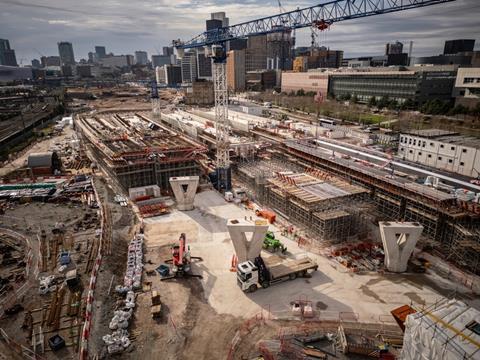NSIP regime to be reformed in upcoming legislation
The government is seeking views on proposals to reform the planning process for major infrastructure projects with the intention of introducing new legislation later this year.
The Ministry of Housing, Communities and Local Government issued a Planning Reform Working Paper on streamlining infrastructure planning over the weekend.

It sets out ideas for reforms to the planning process for Nationally Significant Infrastructure Projects (NSIP), namely through legislative changes to the Planning Act 2008.
These include reviewing National Policy Statements on a more regular basis and making it easier to update them, making the role of consultation in the consenting process “less burdensome”, and strengthening statutory guidance to “ensure clarity over what is and is not required”.
The working paper also advocates for “allowing for appropriate flexibility in the process applied to projects where this is merited” and for greater support for delivery post-consent.
“The objective of these reforms is to deliver a faster, more certain, and less costly NSIP regime, thereby ensuring it can deliver high quality infrastructure and drive forward the growth and clean power commitments set out in the Government’s Plan for Change,” it said.
The government is seeking views on the paper from stakeholders including communities, infrastructure and clean power developers as well as local authorities.
A Planning and Infrastructure Bill, which was included in the King’s Speech, would likely be used to implement any legislative reform proposals which emerge from the working paper and subsequent consultation process.
The NSIP system has consented more than 130 projects since it was established, with 95% of those being approved.
>> Read more: Starmer pledges to speed up infrastructure schemes by scrapping key legal challenges
However, in 2021 it took on average 4.2 years for a project to secure development consent, compared to 2.6 years in 2012.
“The documentation underpinning consents has been getting longer and in too many instances now runs to tens of thousands of pages,” said the working paper.
“Alongside increased uncertainty that statutory timescales will be met, increased litigation has caused further delays and introduced additional risk and costs for developers.”
The working paper was published on the same weekend that chancellor Rachel Reeves indicated her support for a third runway at Heathrow Airport.
She is set to make a major speech on economic growth this week, with some anticipating her to use it to throw the government’s weight behind the airport scheme. The Davies Commission, launched in 2012, recommended the country’s airport capacity increased by building a third runway at Heathrow when it reported a decade ago.
The government has committed to determine at least 150 major infrastructure projects by the end of this parliament, which would be more than triple the 57 decisions made in the previous parliament.

























No comments yet